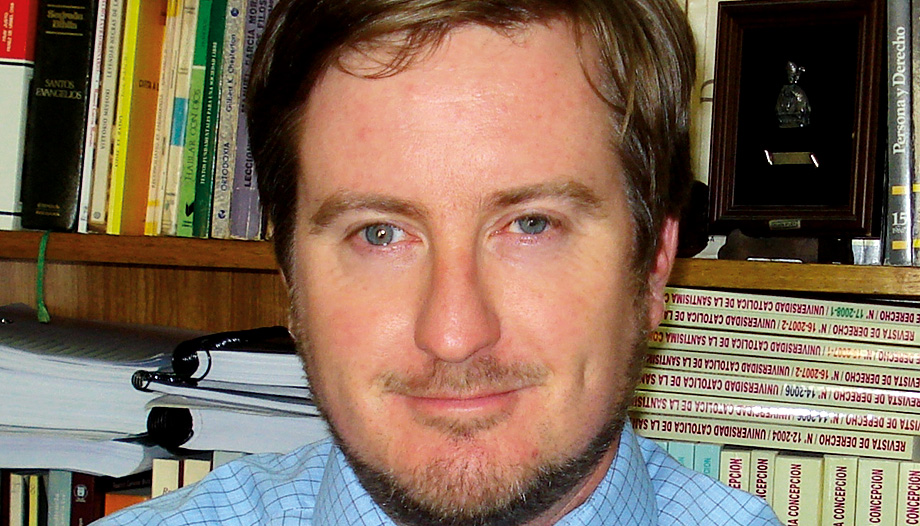In March 2021 we reported on a relevant lawsuit filed by a Chilean woman, Sandra Pavez, a Catholic religion teacher. She was a lesbian and lived with another woman. The bishop of the diocese of San Bernardo, where the school was located, warned her that her decision was contrary to the duties of chastity and that if there was no change he would be obliged to revoke her certificate of suitability, as she did not give "testimony of Christian life", which the Catholic Church expects and requires from teachers of that subject. She did not agree, and her authorization to teach Catholic religion was withdrawn, although she was able to continue working in other functions in that school. The teacher appealed to the civil courts and lost in all instances.
In 2008 he presented his case to the Inter-American Commission on Human Rights, which found in his favor. He then filed a complaint with the Inter-American Court of Human Rights (IACHR) against the State of Chile. At the end of April 2022, the Court ruled in favor of Pavez. The Court agreed that children and parents have the right to receive religious education, and that religious education can be included in public education to guarantee the rights of parents. There is also an intrusion on the freedom of religious denominations as it orders the creation and implementation of a permanent training plan for those in charge of evaluating the suitability of teachers; it asks the Chilean State to determine a procedure to challenge the decisions of public educational establishments regarding the appointment or removal of religious teachers as a consequence of the issuance or revocation of a suitability certificate.
This decision could affect a majority of the children in Chile - and the 21 other countries on the continent subject to the IACHR - who receive their education through publicly funded schools. The court's ruling means that any religious group will not be able to ensure that those appointed to teach that religion live by what they teach.
Is this ruling a surprise or is it in line with the ideology of the court?
-The truth is that it is not surprising, not only because of the trajectory of the jurisprudence of this court in recent years, but also because among its members there are prominent promoters of the LGTBI cause. It should be taken into account that the human rights that are most often raised today have little to do with the so-called "traditional" ones; and that within this new reconfiguration, the right to life, the main and prior right that makes possible the enjoyment of all the others, has ceased to be the fundamental prerogative and has been replaced by the so-called "sexual and reproductive rights". These are today the centerpiece of the "new human rights", to which all other rights yield, including life, as in the case of the unborn. And everything suggests that this process will continue.
What is the most relevant aspect of this ruling?
-Although I have not been able to study the ruling in detail, it highlights that although the ruling states that the right of parents to provide the religious education they deem relevant to their children is guaranteed, in practice this right is made almost unfeasible by preventing religious institutions from being able to ensure that their teachers are faithful to the creed they claim to profess. And furthermore, the State acquires an undue and dangerous interference in this area, arbitrarily usurping it from the religious entities, which are left almost without effective tools to carry out their work. And the cause is that the right to religious freedom and the right of parents to educate their children in accordance with their convictions clashes with what international organizations generally consider to be the most important: sexual and reproductive rights.
What legal force will it have for the State of Chile?
-There is an obligation to abide by and enforce the judgments in which the country is condemned. However, it should be noted that this court has no way of forcing the condemned country to effectively carry it out. That is why the rate of total compliance with the Court's judgments at the continental level is quite low. Therefore, it depends above all on the political will of the governments in power to put it into practice. In any case, if they do so, there would be a serious collision with other rights enshrined in our current Constitution (such as those that the Court in fact ignores, despite nominally recognizing them), although this incompatibility might not occur in the event that a new constitutional text is approved along the same lines as those indicated by the Inter-American Court.
Will religious denominations be unable to determine the suitability of teachers who teach religion?
-If the ruling is fully complied with, yes. In practice, what the Court has done, although it does not say so, is to make this power of the religious confessions inoperative. The matter is serious, because it implies that the civil power intends to completely dominate the religious sphere, thus putting an end to the just autonomy of these denominations. In addition, this affects the right of parents to educate their children according to their own convictions, freedom of education, and, more distantly, freedom of expression and conscientious objection, among others. In short, and although it is not said, a step has been taken in favor of the constitution of a totalitarian State, paradoxically, it is insisted, in the name of these same "human rights".









